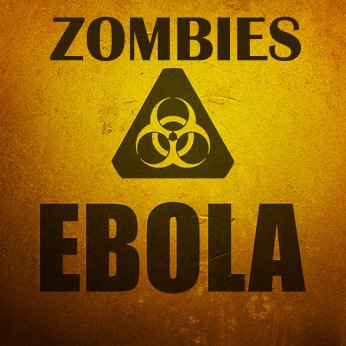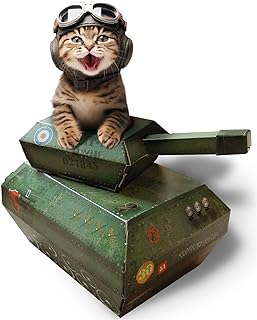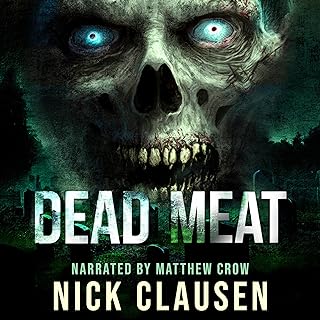Zombies Ebola
 What Is the Best Survival Gear for a Family to Have During an Outbreak?
What Is the Best Survival Gear for a Family to Have During an Outbreak?
Natural disasters and man-made terrorist disasters are occurring with more frequency than ever. Imagine an infectious zombie ebola patient in a mall with a remote control sucide vest. So it makes sense to make sure that your family is prepared for any event. Preparation gear should always be in place before any disaster strikes.
You’ll want to gather your items and have them packaged and ready so that when the time comes, you can easily put your hands on what you need. Hopefully, you won’t experience disasters – but being prepared with the right equipment can help your family survive.
The equipment that your family should have can be packed (before it’s needed) into a sturdy backpack. You should make sure that the backpack is waterproof so that it protects the contents from getting damaged by inclement weather.
In the backpack, you should put enough gear to take care of each member of your family. If you have a larger family, you’ll need to prepare more than one backpack.
Inside the backpack, you’ll want to have a change of clothing for each family member. Food should be included in your survival gear. When packing food, obviously, you don’t want to pack foods that will spoil quickly.
Pack things like high protein food bars and other foods that have a lot of calories (minimum 2,000 calories) and can take the place of a meal. Water for every member of the family should be packed and ready.
But since bottled water can take up a lot of space and become heavy and awkward to carry, look for water that’s specifically made for survival gear that’s packaged in lightweight boxes. This purified water is packaged in a way that it can be safely stored in a wide variety of temperatures.
Protection is a must during a survival situation. You may want to arm yourselves with weapons, depending on the situation. For natural protection, you’ll need a solar powered radio so that you can listen to emergency broadcasts. You’ll want protection from the elements and protection against extreme weather.
You’ll need thermal blankets. Some survival experts suggest buying thermal blankets in packets of several at a time, and adding ponchos and emergency or tube tents. You’ll also want light sticks in the event that electricity isn’t available. You’ll need a functional knife such as a multi-tool Army knife on hand in case you need to cut rope for a tent or for other purposes.
Family members that take prescription medication should have their medication included in your survival gear backpack. You should have at least a two-week supply of any prescription medication put aside for survival situations. A first aid kit with medication such as medicine for headaches, bug bites and supplies for treating and bandaging cuts and wounds should also be included in your backpack.
The Best Way to Hone Your Outbreak Survival Skills
Human beings have a strong will to survive, but that will can easily get beaten down when faced with overwhelming situations. A situation is only overwhelming when there’s a lack of knowledge or skill. When you know what do to because you’ve already planned ahead of time, you can act on instinct rather than react in a panic.
Fire drills are practiced in schools (and should be in your home, too) so that everyone will know what he or she is supposed to do. When you perform a task often enough, you can do it automatically without thinking about it when an emergency hits.
Test yourself by conducting drills by going camping on the weekends and only bring your survival bag. Camp in inclement weather so you’ll be prepared to handle that, but remember to let someone know the area where you’re going to go camping.
Practice often so you’ll know what to do in the event of weather disasters, health emergencies and threats to your safety. Practice using the first aid kit, treating a wound, an unconscious person, practice setting a broken bone, treating a burn, etc. Practice what to do if you’re unable to call for help and you’re wounded.
It’s important because the best way to survive is to practice what you’re going to do in any worst case scenario. You might not live in an area prone to tornadoes, but that doesn’t mean one won’t happen-be prepared for the unexpected.
Number one, prepare yourself mentally. If you allow the situation to overwhelm you or to make you fall into the trap of self-pity, your survival odds drop. The first step to take is to assess your situation and realize that you need three things – shelter, food and water. Of the three, find shelter first, a water supply second and food last.
Of course, practice is easy when you’re already prepared for survival. You should have a stockpile of food and necessities already gathered in your emergency pantry for your survival.
You should have staples in large quantities. Have water jugs filled and ready in your emergency pantry. Besides food, have batteries, flashlights and a camp stove put back as well.
But you should also get survival guides and study those so that you’ll know what to do if you have to get your food source from the land. For example, some people advocate eating plants, but certain plants will not only upset your stomach, they’ll kill you. What you want to do is to hope the worst case scenario never takes place – but you want to be prepared for it if it does.
Why Outbreak Survival Planning Is Right for Everyone
Outbreak survivalist planning is a plan that families can make to be self-reliant in the event of a major disaster. It’s important to be prepared because during a time of crisis, you don’t want to have to scramble to stay alive.
When disasters occur, normal routines get interrupted. That means food items are delayed on their way to the grocery stores. There can be widespread outages of food and other necessities such as water and medication.
Before a disaster strikes, if people know it’s coming, such as a storm, you’ll often see news images of empty grocery shelves. That’s because people who didn’t plan ahead are now rushing out in an effort to take care of themselves and their loved ones.
At best, this made rush will only result in a few days’ worth of supplies. If there are long term electricity outages (as we’ve seen in the aftermath of major hurricanes), it can be difficult for people to get out or in.
You’ll need a way to compensate for electricity outages. Look at what happened in the aftermath of Hurricane Katrina. Citizens who weren’t stranded by the rising waters were stranded because they didn’t have the gas to get out of town and none of the gas stations were working.
You don’t want to put off preparing because a crisis can hit at any moment. You’ll want to be prepared in the following areas: food, water, shelter, medical needs, safety, money, and gas.
Zombie Survival Get a Bad Rap in the Press
Back in the 1800s, people prepared all summer for the tough winters ahead. Food was stored where it would keep during the cold months. Food for livestock was also stored well in advance. No one thought of these people as weird. They were simply being smart and trying to survive.
Though it shouldn’t, most of our impressions of people and situations today come from television. We’ve all seen those interviews on doomsday reality TV shows where the camera is in the face of a wild-eyed individual who’s spouting some pretty weird things as he talks about survival planning.
Those doomsday shows deliberately seek out whatever will cause a sensation – because television is all about the ratings. Normal people don’t drive up ratings.
Because of this slanted type of television, most survivalists get a bad rap.
Of course, once something is on television, print media dutifully follows that same line of slanted reporting and newspapers and online articles crop up full of negativity about survival planning.
Ebola Zombie Survivalists are citizens who want to be prepared. These are people who are determined that their families aren’t going to do without survival necessities during a time of crisis.
A outbreak survivalist isn’t someone who believes or maybe hopes that the world is on the edge of destruction. Rather, a outbreak survivalist is a smart individual who knows that disasters happen including pandemics.
Nature has proven time and again how unpredictable it can be in its attempts to kill us. A outbreak survivalist knows the best way to respect that unpredictability is to be prepared. Natural disasters aren’t the only reason that you need to be prepared to be self-reliant.
Look at what happened in Greece. The government decided that the citizens were going to be their backup bailout plan for the country’s debt. Once a plan was announced that the government was going to take 10% of the citizens’ bank funds, panic and protests ensued.
There was a mad run on the ATMs as people scrambled to pull their money out. Because of the surge of withdrawals, the ATMs ran out of money. Many people considered this move an illegal government confiscation of private funds.
The crisis reached the stage where the government closed banks temporarily to keep people from taking out all their money. Does the government have that kind of control?
Do they have that kind of authority? Yes. The same situation that happened in Greece could happen anywhere – and you don’t want to be caught off guard – especially if you’re a parent.
A outbreak survivalist hopes that a personal, natural or government disaster won’t happen, but takes the proper steps to be able to survive in case it does.
You Don’t Have to Be Rich to Plan for an Outbreak
Planning to survive in the event of a crisis is something that all citizens should do. You don’t have to have loads of money in order to start putting a outbreak survival plan in motion.
In fact, when a crisis hits, studies have shown that it’s often those with less income that fare the worst having almost nothing in reserve. You see them within hours after a hurricane asking where to find food, gas, ice and water. You can start your survivalist planning by making small purchases now.
What you want to do is to start making what’s called short term packs. These are items that you must have on hand that are essential for survival during a disaster or outbreak. Add to these supplies as you go along and in the long run, you’ll end up saving money.
Self-sufficiency is a skill that always pays back in full those who utilize it. People that have food in storage and people that can live off the land – these are the people who don’t have to worry when certain disasters hit because they know their basics needs are going to be met.
In your packs, you’re going to want to have food that will keep. Nutrition bars, canned meats, canned fruits and vegetables are foods that will keep for years if you store them properly.
You can also start a garden and grow your own fruits and vegetables. This way, you’ll be able to can the food you grow and stock up that way, too. You can even store some meat for the long haul.
Put together enough water for everyone in your family. You should have a gallon of water set aside for each person for each day that it will be needed. Water will also keep in storage. You’ll also want to have on hand some water purification tablets.
Have the medication that’s needed for each family member. Whenever a natural disaster hits, pharmacies and doctor’s offices are also closed and you won’t have access to medicine if you run out, so make sure you keep a three month supply of the medicine.
You can do this through a mail order pharmacy that will give you three months’ worth of a prescription at once. You’re going to use them anyway, so having them on hand for a disaster is just smart preparation.
Stock up on baby supplies like diapers, baby wipes and formula a little at a time. Have extra clothing for the baby as well as for each member of your family. Make sure you have baby medicine in case of a fever, too.
Store toiletries as well. You’ll want shampoo, deodorant, razors, soap, toothpaste, toothbrushes and toilet paper. Those would be necessities but you can also store luxury items as well, such as lotions and facial cleansers.
Having a first aid kit ready and set aside is important. Make sure the kit has plenty of waterproof bandages, including wound dressings. You’ll want antibiotic ointment, alcohol wipes and Calamine lotion.
Pack insect repellent, scissors, ibuprofen, aspirin and burn cream. Add to the kit scissors, a surgical field pack, safety pins, wraps for sprains, tweezers and a magnifying glass.
Don’t forget to pack waterproof matches, blankets and sleeping bags. Have the lighting you need, too – such as flashlights like the solar powered ones, candles and kerosene lamps.
An emergency solar radio can help keep you up to date on the latest cleanup and restoration efforts going on in your area after a disaster, so have one on hand. You might want to also invest in a solar powered charging station for your cell phones.
If you were to try to plan all of this at once, these supplies would be very expensive, but by breaking the list down and steadily adding items week after week, your supplies will soon be ready.
What you can do is every time you go to the grocery store, set aside a certain amount of money that’s earmarked for emergency events. Use that money to stock up only on things you need from your preparedness list.
Spending even a small amount will help you be prepared. Even if all you manage to stock up for is a couple of weeks – over time, you’ll still be better off than you would be if you hadn’t taken those steps.
Preparing to survive through a disaster doesn’t have to be an exercise in gloom and doom – you can get everyone in the family involved.
You Can Try to Make It a Fun Family Experience
One of the biggest mistakes parents make is thinking that their children will be scared if they get them involved in disaster survival planning. But children are a lot wiser than most parents give them credit for.
They can pick up on tension when tough times hit. Kids are more afraid when disasters happen and the parents are stressed out because the parent doesn’t know where the next meal is going to come from.
Knowing that their family is prepared during a disaster and that there will be food and shelter, warmth and even fun during the tough days will ease their minds. Even more than themselves, kids also worry about their parents and their siblings.
So knowing that the whole family will be cared for can turn a potentially traumatic situation for them into a fun learning experience instead. You can get your children involved by getting their help when it comes to picking out supplies.
Your child can man the preparedness list and help cross off items every time you bring home one of the needed supplies. You can even create a fun chart and add gold stars every time you reach a certain supply goal.
Take the kids with you and let them pick out the entertainment that you’ll want to have on hand in the event of a disaster. Let them choose which board games or card games they want. Have them be the ones to choose a family puzzle.
Not only will they like being in charge of the entertainment, but spending time together as a family doing something fun, even in the event of a disaster, is reassuring to children that their family is still okay.
Let your kids get involved by picking out the seeds needed to plant a garden, too. Using seeds is also a very budget conscious way to prepare for emergency food needs.
You’ll want to plan the amount of seeds based on what you think it will take to keep your family afloat for a year. Your children can have fun picking out their favorite seeds and watching them grown into plants and develop into fruits, vegetable or grains.
Let them create a little scarecrow for the family garden, too. Keep in mind that to kids, as long as the family is okay, they feel okay. So as you’re preparing for the event of any emergency, make sure that you’re presenting it in a positive light.
For example, even though adults don’t like to be without electricity, kids adapt faster and will see the lack of electricity as an adventure. By preparing ahead of time, you can use the situation as a learning experience.
As you buy kerosene lamps, you can talk about how much children once did their homework by the light of a kerosene lamp. When you get a compact stove for your preparedness supply, you can talk about how people used to prepare their meals over open campfires or on wood stoves.
You Gain Peace of Mind When Prepared for Outbreaks
There have been several snowstorms that have gone down in history as being pretty severe. One hit Chicago in 2011 that dumped over 20 inches of snow in certain areas of the city.
When that storm hit, electricity went out, business shut down and a lot of people ended up stuck in their cars, unable to go anywhere. That was a major snowstorm.
However, even in less severe snowstorms, people rush the grocery store (much like the people rushed the ATMs in Greece) and the shelves are emptied of all of the basic necessities and even empty of the not so basic necessities.
Why? Because disasters and threats of disasters create panic in people. Now imagine what would happen in the event of a real disaster. If a simple snowstorm can create panic and a rush on the stores, what would happen if the government had a breakdown?
Or another hurricane the size of Katrina hit? You can bet that utter chaos would take over and that getting even the basic supplies would be difficult. You don’t want to be in that predicament.
If you’re already prepared, you won’t have to deal with that kind of stress and fear. By stocking what you need well in advance of the event, you’ll have the food you need on hand to feed yourself, your family members and any family pets or livestock.
Getting ready for natural or man-made disasters means that when the water supply you’re used to having is cut off, you’ll still be okay because you’ll have your own supply of water.
Even if the electricity shuts off, you’ll be prepared by having solar powered devices, oil lamps and long lasting flashlights. While everyone else is in the dark, your family will be less scared and more comforted.
When disasters hit, schools often shut down – and if the disaster is big enough, you won’t have any idea about when the school will be back up and running. By having educational supplies, your children will still be able to keep up with their studies.
Protecting yourself can also go a long way to giving you peace of mind. Whenever there’s a disaster of any kind, a period of lawlessness occurs as people begin looting. Sometimes, that taking of others’ belongings can turn violent.
When disasters happen, the law of the city is also affected. Response time from the police can be delayed or in some cases, not answered at all. You want to make sure that you have the means and the knowledge to prevent anyone from harming your family during the time of crisis.
Remember that preparing ahead of time in all areas of disaster pandemic survival planning puts you on the offensive, which is always a better position to be in than defense. Don’t worry about what other people may think – don’t mention it – just take this on as a silent method for keeping your family safe and prepared for the future.







